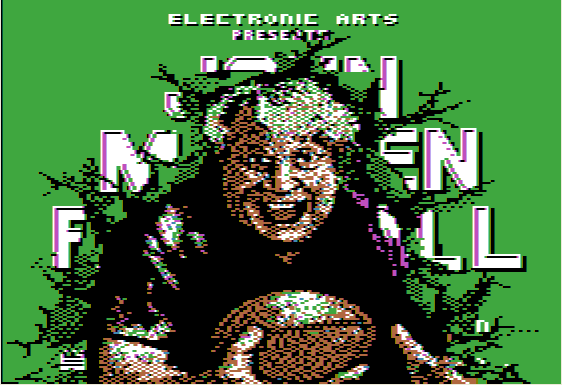Any gamer knows the Madden franchise. It
might as well be the only football video game on the market. "Football
video game" and "Madden [put any year since 1992 here]" are so
synonymous that using the two phrases in the same sentence is probably a little
redundant. Being
redundant, however, is probably the last thing that Antonick's lawyers will be
accused of after this case.
In Antonick
v. Electronic Arts, an original developer of the extremely popular
video game franchise hoped to obtain a massive amount in past royalties thanks
to a “Derivative Work” clause buried in his 1986 contract with Electronic Arts
(“EA”). ;While the developer’s intentions
seemed good – and whole-heartedly driven by dollar signs in his eyes—his attorney’s
execution in this case will leave all ambitious video game developers with an
acidic taste in their mouth.
First Rule of Evidence: If You Need It,
Introduce ItBack during the infancy of John Madden Football (“Madden”) and EA, Robin Antonick developed the code for the original Madden game designed for the Apple II. Thanks to the success of this version of the game, in 1989, Antonick began working on a Madden version for the Sega and Nintendo consoles. However, a year later EA told him to stop all development because they wanted to go with a more “arcade” feel to their games.
Despite this change in gears by the EA brass, the interface of the game – according to an assistant producer of the original Madden game that took the stand – “looked identical to the Apple II version.” Antonick, believing that the code for the new versions of Madden were derivative works of his original Apple II version, filed ;a lawsuit seeking royalties for every single game in this juggernaut of a franchise.
Unfortunately for Antonick, the expert testimony that his attorney propped the entire case up on crumbled faster than a cookie in the hand of a toddler. Instead of actually introducing the code of the Apple II version and the Sega and Nintendo versions to point out the stark similarities to the interface and coding of the game, Antonick attempted to use testimony to show a jury that the games were substantially similar. ;While it seemed to work after the jury came back with a favorable verdict, the overall outcome was not favorable for Antonick after the judge got his hands on it.
Can’t Pass a Test Without Putting Down an Answer The Ninth Circuit uses a two part test when determining when one work is substantially similar to another.; According to Benay v. Warner Bros. Entm’t, Inc., 607 F.3d 620,;624 (9th Cir. 2010) a plaintiff must prove both substantial similarity under the “extrinsic test” and substantial similarity under the “intrinsic test.” The “extrinsic test” is an objective comparison of specific expressive elements. The “intrinsic test” is a subjective comparison that focuses on whether the ordinary, reasonable audience would find the works substantially similar in the total concept and feel of the works.
Although a jury found that Antonick was entitled to royalties, the district court granted a judgment as a matter of law to EA under the “intrinsic test” because “the jury had no evidence of [the] Apple II Madden or [the] Sega Madden.” The Ninth Circuit affirmed this ruling stating that “our law is clear that expert testimony cannot satisfy a plaintiff’s burden of proof under the intrinsic test.” The court goes on to say that the lay witness testimony of how the games appeared was also useless because the coding of the games was the real issue at hand, not whether or not gamers thought the interface was similar.
After this ruling, it is safe to say that Antonick certainly missed the gravy boat that is the Madden franchise. While he had a good argument that he deserved at least some residual cash for his initial work on the ever-so popular game, his execution of his case was so poorly handled that he will probably wake up with night-sweats thinking about what could have been.; Let’s hope the game developer has another billion dollar coding idea hidden somewhere up his sleeve to make up for this series of unfortunate mishaps.


